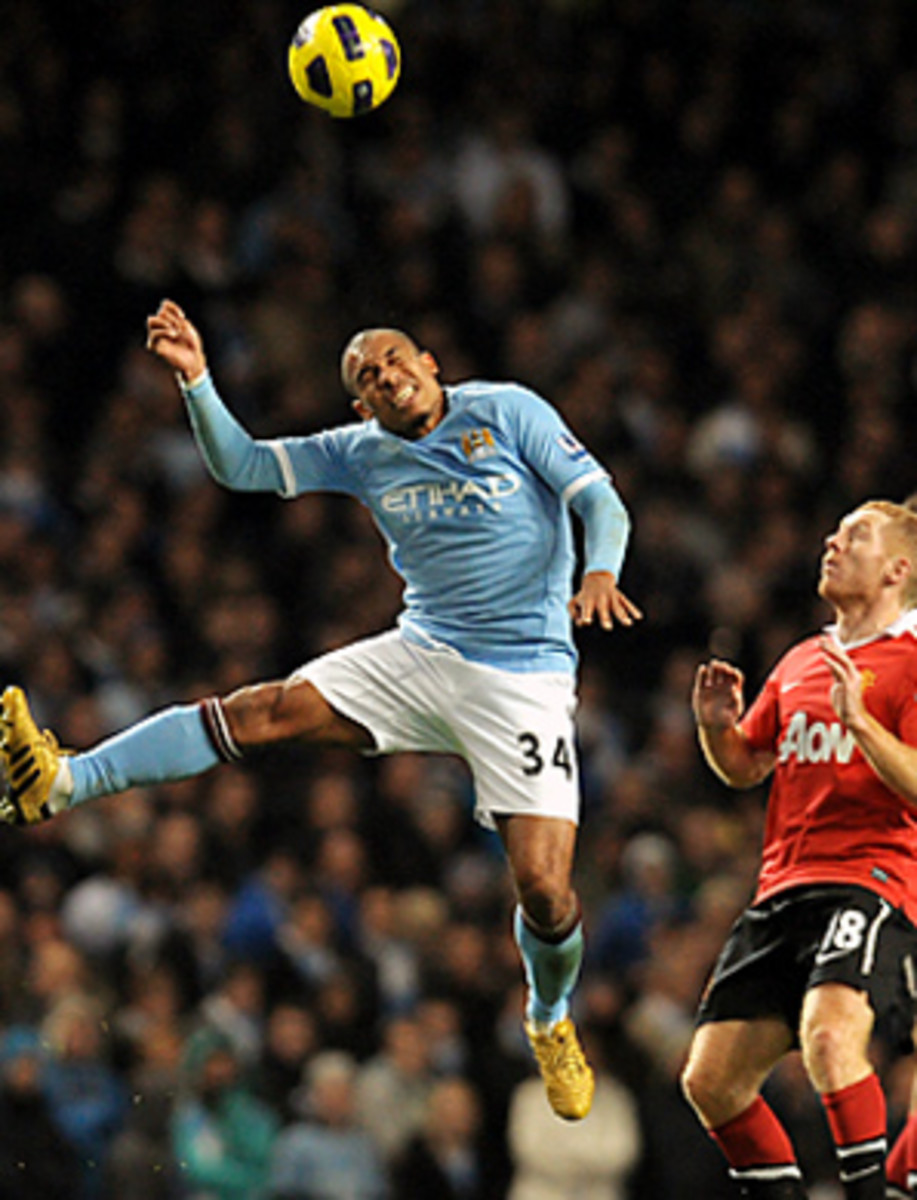Manchester derby disappoints
For Manchester United, this has been a season of damage limitation. The Wayne Rooney affair has dominated the chatter around the club and, given how vital he was last season, understandably so. But amid Rooney's protracted contract negotiations, the uncomfortable truth of the rickety nature of United's structure was revealed. Partly because of injuries, and partly because of a lack of investment following the departures of Cristiano Ronaldo and Tevez, Ferguson has been left with a squad comprised of the unproven -- such as Rafael and Javier Hernandez -- and the aged -- Van der Sar and Paul Scholes. It has been a case of muddling through, patching things up as best he can and waiting for the injured to return and Rooney to sort his head out. It is part of Ferguson's genius that he is as adept at that as he is at handling big signings.
Before the derby, United was further afflicted by a virus that laid several players low. For Ferguson, the priority had to be to get out of Eastlands with a point, to continue United's improbable unbeaten start, to at least stay within sight of Chelsea, and to remain above City in the table. He has tended to play a 4-4-2 this season, but on Wednesday he opted for Dimitar Berbatov as a lone striker, flanked by Nani and Park Ji-Sung, with a three-man central midfield to match City's shape. "City are very difficult to beat on their own ground and obviously they set their stall out," Ferguson insisted, but he was surely being disingenuous. "It's a decent result but we don't count draws away from home as the target before the game. Our target is to win the game and I think we had enough possession to do that."
The pattern this season has been for City to wrest control of games with their midfield power. Nigel de Jong, Yaya Toure and Gareth Barry are a formidable trio, but they found themselves matched by Darren Fletcher, Paul Scholes and Michael Carrick. Physically, City had the edge, but United were tenacious enough and disciplined enough that they just about held their own in the centre and the result was a frustrating stalemate. Scholes, predictably, was booked for persistent foul play, but he was never under sufficient pressure for there to be much danger of a second yellow card. Carrick, meanwhile, had one of his best games for some time, a hint perhaps that he could yet return to the form he showed before seemingly losing his nerve in the 2009 Champions League final.
Unable to grind United down, the limitations of City's midfield as a creative force were exposed. Toure, as usual, was the most attacking of the midfield trio, but on the odd occasions he was given space to advance with the ball, he ran into trouble, lacking the dribbling ability to beat players, or the composure or vision to pause and find a pass. That was perhaps most obvious in the final minute of the first half, as he won possession just about 15 yards inside the United half, advanced on a diagonal, and ended up almost running into Tevez, who was checking to stay onside. Toure had space, and a player more naturally suited to the creative role would surely have been able to delay his advance, and wait either for Tevez to make his move or for one of City's wide forwards to move into space.
Both those wide forwards disappointed. Roberto Mancini, the City manager, played them as orthodox wide men, with James Milner on the right and David Silva on the left, and neither was able to impose himself on the game. Even when Adam Johnson was introduced for Milner with 17 minutes remaining, Mancini resisted the temptation to invert them, and the result was that, for all Tevez's harrying, City was static. When it is not playing well, the link between the back seven and the front three tends to break down, and so it was on Wednesday.
It remains unclear whether Mancini prefers his two full-backs to advance; the two players he has who could interpret the role as an attacking position, Micah Richards and Aleksandar Kolarov, have been injured, although Kolarov was brought on with eight minutes remaining. Jerome Boateng and Pablo Zabaleta are less comfortable pushing forwards, but it was notable that the only real chance of the second half came from Zabaleta overlapping, cutting into the box and then seeming to panic as a shooting chance presented itself, blasting his shot over as Tevez called for a pull-back.
There was much grumbling that City hadn't brought on Emmanuel Adebayor earlier -- and turning to him in injury-time was bizarre -- but it's hard to know what difference he could have made. Perhaps a switch to 4-4-2 would have been worth it just to present United with a different problem, but Nemanja Vidic was in commanding form anyway, and it's unlikely he would have been troubled by a more aerial attack.
If there was a disappointment in the substitutions, it was that Ferguson didn't risk pairing Berbatov and Javier Hernandez, who replaced the Bulgarian with 12 minutes left. Switching to 4-4-2 might have given Nani greater freedom and put pressure on Zabaleta, but having successfully negated City's apparent advantage in midfield, it's understandable that Ferguson was unwilling to risk losing control of that area. Whatever he may have argued immediately post-game, his aim was surely to avoid defeat, and thanks to the performance of his midfield three he did so. It was far from good to watch, but the mission was successfully accomplished.





